Anthropology faculty explore topics that range from vanishing forests to protest chants, from social services to patterns of colonization. We have special geographic coverage in South Asia, East Asia, the United States, Latin America, Oceania, Europe, the Middle East, and Africa, and we offer courses in sociocultural anthropology, linguistic anthropology, archaeology, ethnomusicology, applied anthropology, and environmental anthropology.
Anthropology Faculty
-
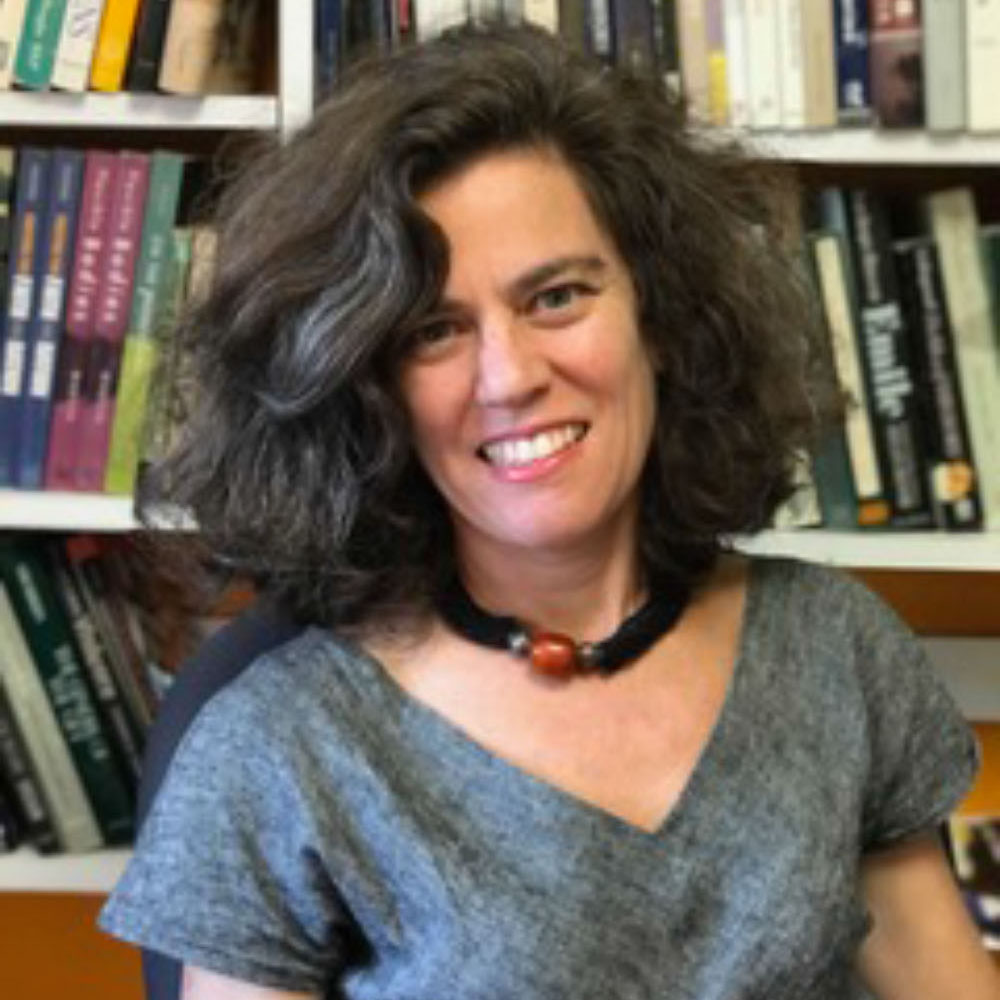 Laura Kunreuther, Director
Laura Kunreuther, Director
Laura Kunreuther, Director
Program Affiliations: Asian Studies; Experimental Humanities; Human Rights; Gender and Sexuality Studies
Laura Kunreuther began teaching at Bard in 2001. She completed her B.A. at University of Pennsylvania and finished her Ph.D. at University of Michigan in 2002. Prof. Kunreuther's teaching and research interests center on themes such as cultural memory, urban public culture, postcolonial theory, technology and media, social suffering, affect, sound, and voice. She has conducted extensive research in Kathmandu, Nepal. In addition to thematic courses, she teaches classes on colonial India and ethnography of South Asia. Professor Kunreuther's first book, Voicing Subjects: Public Intimacy and Mediation in Kathmandu, traces the relation between public speech and notions of personal interiority during a moment of political upheaval in Nepal through a focus on two distinct formations of voice. She is currently engaged in two new projects that both explore sound, listening, and political subjectivity. The first centers on the use of sound for political and artistic protest; the second centers on the role of interpreters deployed in field missions of the UN. Other articles explore the intersection between state and domestic archives, media ideologies and the FM radio in Kathmandu. Her research has been supported with grants from Fulbright-Hays Foundation; Mellon Foundation; Social Science Research Council; the Freeman Foundation. Prof. Kunreuther coordinates the 'Sound Cluster' through Experimental Humanities, and is additionally affiliated with Human Rights, Asian Studies, Gender and Sexuality Studies programs at Bard.
Select Publications
2016 Publics of Heritage and Domestic Archives Among Urban Nepalis of the Valley. In Political Change and Public Culture in Nepal, Michael Hutt and Pratyoush Onta, eds. Cambridge University Press.
2014 Voicing Subjects: Public Intimacy and Mediation in Kathmandu. South Asia Across the Disciplines Series. Berkeley: University of California Press.
2010 "Transparent Media: Radio, Voice, and Ideologies of Directness in Post-Democratic Nepal." Journal of Linguistic Anthropology 20(2): 334 – 352.
2009 "Between Love and Property." American Ethnologist, 36(3): 545-562.
2006 "Technologies of the Voice." Cultural Anthropology, 21(3): 323-353. -
 Andrew Bush
Andrew Bush
Andrew Bush
Andrew Bush is an anthropologist interested in the intersection of religion, gender and sexuality, law, and poetry in the Middle East broadly. He has conducted research in the Kurdistan region of Iraq since 2004, with support from the Wenner-Gren Foundation, the National Science Foundation, and Johns Hopkins University. His first book, Between Muslims: Religious Difference in Iraqi Kurdistan (Stanford University Press 2020), aims to describe the kinds of ethical life available to Muslims who spurn devotional piety but retain intimate kin relations with other pious Muslims. His second book has been supported through a fieldwork grant from Wenner-Gren and a fellowship at Harvard Law School’s Program on Law and Society in the Muslim World. Tentatively titled: A History of Husbands in Islamic Law, this book asks how questions of manhood or masculinity have been shaped by different legal forums adjudicating questions of marriage and divorce in Kurdistan since the 18th century. Other writing has been published in American Ethnologist, the Journal of
Middle East Women’s Studies, and the Wiley-Blackwell Companion to the Anthropology of the Middle East. He was previously a Research Fellow at Cracow University of Economics and taught for four years at New York University Abu Dhabi. He completed a Ph.D. at Johns Hopkins University in 2014 and joined Bard in 2022. For more information see his personal website, www.jandrewbush.org -
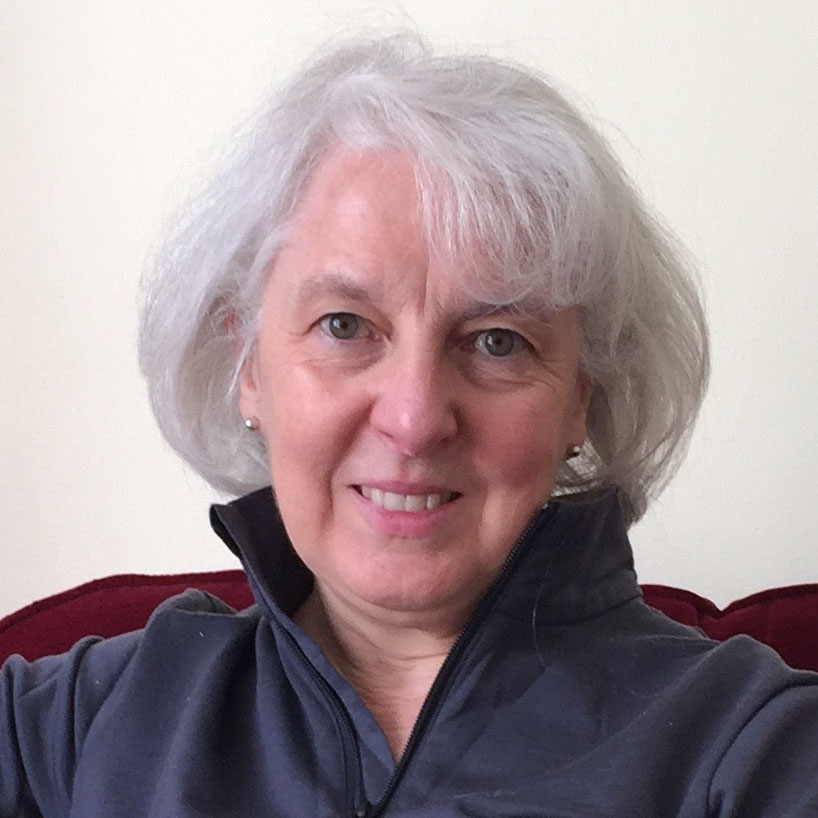 Michèle DominyProfessor Emerita and Research Professor of Anthropology
Michèle DominyProfessor Emerita and Research Professor of Anthropology
845-758-6822 | [email protected]
Michèle Dominy
Professor Emerita and Research Professor of Anthropology
845-758-6822 | [email protected]
Program Affiliations: Environmental and Urban Studies; Global and International Studies; Gender and Sexuality Studies; Science, Technology and Society
Michèle Dominy received an AB from Bryn Mawr College and PhD from Cornell University and began teaching at Bard in February 1981. She has conducted long-term field research in the New Zealand high country on land, culture and identity, with a focus on place attachment, land contestations and sustainability in mountain lands. Fieldwork in Australia focused alpine cultural heritage in NSW and Victoria. Her current research projects in empire and ecology explore cultural and natural heritage conservation and botanical anthropology in the British diaspora with a focus on ecological restoration, the anthropology of plants, and the culture of orchid hybridization. In addition to the selected publications listed below, she has contributed to The New Zealand Women's Studies Journal, Pacific Studies, Gender and Society, Pacific Affairs, Landfall: A New Zealand Quarterly, Journal of Linguistic Anthropology, Forest and Conservation History, Man, Landscape Review, Current Anthropology, Journal of Political Ecology, The Contemporary Pacific, The Australian Journal of Anthropology, and Journal of the Orchid Society of Great Britain, as well as edited volumes, proceedings and encyclopedias. Research support includes fellowships from the National Science Foundation; the Wenner-Gren Foundation; and the National Endowment for the Humanities. An honorary life member of the American Anthropological Association, she is a Fellow of the Association for Social Anthropology in Oceania, the Royal Anthropological Association of Great Britain and Northern Ireland, and the Society for Applied Anthropology. She has served on the editorial board of the American Anthropologistand on higher education and environmental boards. She is liaison to the Environmental Consortium of Universities and Colleges. She was dean of the college from 2001-2015 and vice president from 2006-2015.
Teaching and Research Areas
Anthropology of place; Colonial and postcolonial ecologies; Politics of cultural identity; Anthropology and literature; Historical ethnography; Interpretive and symbolic anthropology; Gender and kinship; Language and culture; Mountain and rangelands; Settler-descendant societies; British diaspora; Aotearoa/New Zealand; Australia; Ethnography of the Pacific.
Select Publications
2018 Victoria Stead and Michèle D. Dominy (guest editors). Moral Horizons of Land and Place. Anthropological Forum: A Journal of Social Anthropology and Comparative Sociology. 28( 1).
2018 Victoria Stead and Michèle Dominy. Introduction: Moral horizons of land and place. Anthropological Forum: A Journal of Social Anthropology and Comparative Sociology 28 (1): 1-15.DOI:10.1080/00664677.2018.1429251
2018 Postcolonial settler ecologies and native species regeneration on Banks Peninsula, New Zealand. Special Journal Issue: “Moral Horizons of Land and Place,” edited by Victoria Stead and Michèle Dominy for Anthropological Forum: A Journal of Social Anthropology and Comparative Sociology 28(1): 89- 106. DOI: 10.1080/00664677.2018.1431203
2016 “Maori Women’s/Feminist Activism.” The Wiley Blackwell Encyclopedia of Gender and Sexuality Studies, edited by Nancy Naples. New York: Wiley Blackwell.
2008 “Pulling the Right Thread.” InThe Ethnographic Life and Legacy of Jane C. Goodale, edited by Laura Zimmer-Tamakoshi and Jeanette Dickerson-Putman 44-55. Champaign, IL: University of Illinois Press.
2005 “Anthropology ‘In the Savage Slot’: Reflections on the Epistemology of Knowledge.” With Laurence M. Carucci. In Special Issue: Critical Ethnography in the Pacific: Transformations in Pacific Moral Orders. Edited with Laurence M. Carucci. Anthropological Forum15(3): 223-234.
2001 Calling the Station Home: Place and Identity in New Zealand’s High Country.Lanham, MD/Oxford: Rowman & Littlefield.
2002/3 “Hearing Grass, Thinking Grass: Postcolonialism and Ecology in Aotearoa-New Zealand.” Cultural Geographies9: 15-34. Reprinted in Disputed Territories: Land, Culture, and Identity in Settler Societies, edited by David Trigger and Gareth Griffiths, 53-80. Hong Kong University Press.
1999 “Legislating a Sustainable Land Ethic in New Zealand.” Special issue: Sustainability in the Small Island States of the Pacific, edited by C. Stevens and M. Evans. Pacific Studies 22(3/4): 47-80.
1997 “The Alpine Landscape In Australian Mythologies of Ecology and Nation.” Knowing Your Place: Rural Identity and Cultural Hierarchy, edited by B. Ching and G.W. Creed, 237-265. New York: Routledge.
1995 “White Assertions of Native Status.” American Ethnologist22(2):359-375.
1993b “Photojournalism, Anthropology, and Ethnographic Authority.” Cultural Anthropology8(3): 317-337.
1993 “'Lives Were Always Here': The Inhabited Landscape of the New Zealand High Country.” Special issue on Custom Today, edited by G. White and L. Lindstrom. Anthropological Forum6(4): 567-585.
1990b “New Zealand's Waitangi Tribunal: Cultural Politics of an Anthropology of the New Zealand High Country.” Anthropology Today6(2)[April]: 11-15.
1990a “Maori Sovereignty: A Feminist Invention of Tradition.” In Cultural Identity and Ethnicity in the Pacific, edited by J. Linnekin and L Poyer, 237-257. Honolulu: University of Hawaii Press. Reprinted University of Hawaii Press, 1996.
1986 “Lesbian-feminist Gender Conceptions: Separatists in Christchurch, New Zealand.” Signs. Journal of Women in Culture and Society11(2): 274-289. -
 Jeff Jurgens
Jeff Jurgens
Jeff Jurgens
Faculty Chair of the Bachelor's Degree Program (Bard Prison Initiative)
Jeff Jurgens began teaching at Bard in 2005. His research and teaching interests focus on topics related to migration and displacement, citizenship, affect, public memory, religiosity and secularism, urban space, youth, and the cultural politics of college-in-prison. Jeff’s early scholarship examined formations of diaspora and citizenship among people of Turkish backgrounds in Berlin since the 1960s. More recently, he has written about the impact of labor recruitment policies on German citizenship, the role of immigrants in public memories of German division, the significance of Islamic religious instruction in Turkish and German public schools, and the affective dimensions of the “refugee crisis” in Europe. His research has been supported by the National Science Foundation, IIE Fulbright, Berlin Program for Advanced German and European Studies, National Humanities Center, and the Berlin Institute for Advanced Study. In addition to his work in the Undergraduate College, Jeff teaches in the Bard Prison Initiative (BPI) and directs its bachelor’s degree program. He also participates in the Liberal Arts Consortium on Forced Migration, Displacement, and Education, which aims in part to establish a curricular cluster in migration studies at Bard. -
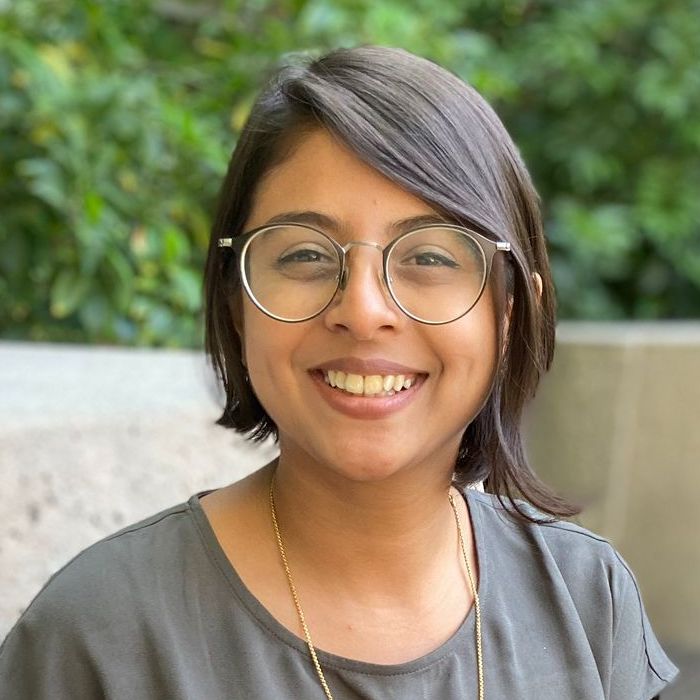 Sucharita Kanjilal
Sucharita Kanjilal
Sucharita Kanjilal
Primary academic program: Anthropology
Academic program affiliations: Asian Studies, Experimental Humanities
Biography: Sucharita Kanjilal’s research focuses on feminist theories of global capitalism, shifting regimes of social reproduction, critical food studies, and contemporary caste-class relations in South Asia. She draws connections between feminist economic anthropology, anthropology of media, gender studies, the anthropology of food, and anti-caste epistemologies. Her current book manuscript, titled Home Chefs: Indian Households Produce for the Global Creator Economy, is an ethnographic study of Indian food media producers engaged in global platform-based industries of online content creation. A former journalist from Mumbai, Kanjilal’s work can be found in Feminist Media Studies, Gastronomica, the Routledge Companion to Caste and Cinema in India, Hindustan Times, Scroll.in, the News Minute, and the Heritage Radio Network and Eat This podcasts. She has received grants from the Wenner Gren Foundation, the Society for the Anthropology of Food and Nutrition, the UCLA Sambhi Foundation, as well as awards from the Association for the Study of Food and Society and the Robert B. Edgerton foundation. She teaches courses on the anthropology of food and recipes, feminist economic anthropology, comparative approaches to media, and ethnographies of South Asia, among others.
BA, St. Xavier’s College, Mumbai; MA, SOAS University of London; PhD, University of California, Los Angeles. At Bard since 2023. -
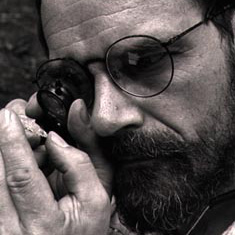 Christopher Lindner
Christopher Lindner
Christopher Lindner
Archaeologist in Residence; Director, Bard Archaeology Field School
BA, Hamilton College; MA, University of Cincinnati; PhD, University at Albany. Dr. Lindner specializes in historical geo-archaeological landscape investigations and experimental use-wear analysis of ancient tools, often with students as assistants in data acquisition. In addition to scientific articles in journals such as Archaeology of Eastern North America, Northeast Anthropology, and Hudson Valley Regional Review, he has edited two collections of scholarly papers, A Northeastern Millenniumand A Golden Chronograph for Robert E. Funk. He recently published a chapter “Guineatown in the Hudson Valley’s Hyde Park” in the book Archaeology of Race in the Northeast. As anthropology professor, he teaches in the fall "Field Methods in Archaeology: Ancient Peoples on the Bard Lands" on a prehistoric site and in the spring "Historical Archaeology," which has its focus on Mohicans, colonial Germans, and African Americans near Bard. His students also pursue projects in American Studies, Historical Studies, Environmental Studies, and Africana Studies. He devotes summers to the "Bard Archaeology Field School" for college, community, and high school students. He maintains on-going projects at the prehistoric Forest site at Bard, and at the 18th and 19th-century Parsonage in Germantown. As scientific consultant, he participates professionally in environmental impact studies and planning for protection of cultural resources. Dr. Lindner is Past-President of the New York Archaeological Council, the state's professional organization, and former President of Hudson River Heritage, the historic preservation group for advocacy and education in the Mid-Hudson Valley. -
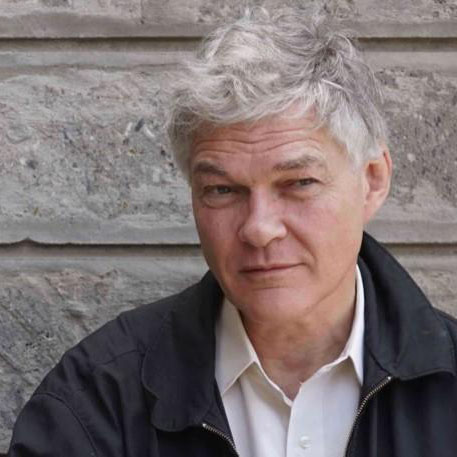 John Ryle
John Ryle
John Ryle
John Ryle is Legrand Ramsey Professor of Anthropology at Bard College, NY. He is cofounder of the Rift Valley Institute, a research and public information organisation that has worked in Eastern and Central Africa since 2001, and was Executive Director of the Institute until 2017.
He is coeditor of The Sudan Handbook (2011) and a contributor to periodicals including the London Review of Books, the New York Review of Books, the Financial Times, and Granta. He was formerly a columnist on the Guardian and an editor at the Times Literary Supplement.
His website, johnryle.com, is a live repository of research, activism, journalism and critical writing from 1985 to date, with reportage from Africa, Asia and the Americas, and accounts of anthropological and human rights research in the Sudans and Brazil. The site includes information about books and video documentaries, translations of Brazilian poems and songs, a blog—Field Notes—and the archive of a newspaper column, City of Words. -
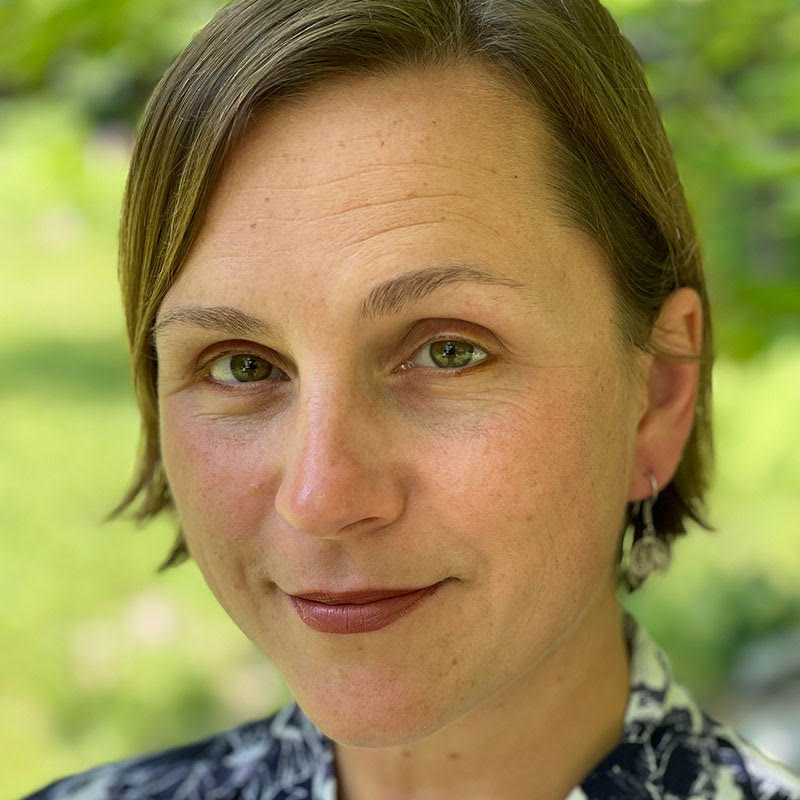 Maria Sonevytsky
Maria Sonevytsky
Maria Sonevytsky
Professor Sonevytsky’s research focuses on post-Soviet Ukraine, where she has pursued interests including folklore revivals after state socialism and the effects of the Chernobyl nuclear disaster on the revival of rural musical repertoires. In 2011, to commemorate the 25th anniversary of the Chernobyl nuclear catastrophe, she founded the Chernobyl Songs Project: Living Culture from a Lost World, a public ethnomusicology program that sought to broaden awareness about the cultural impact of nuclear disaster by reviving ritual song repertoires from rural communities near the accident site that had dispersed after 1986. The project culminated with multimedia performances in four cities and a Smithsonian Folkways recording. She is the author of Wild Music: Sound and Sovereignty in Ukraine (2019), winner of the Lewis Lockwood Award from the American Musicological Society; journal articles in Music & Politics, Public Culture, The World of Music, and Journal of Popular Music Studies; and several book chapters. Other areas of interest include critical organology, the science of musical instruments; and Soviet children’s music. Sonevytsky is also an accordionist, vocalist, and pianist. She taught at Bard for several years beginning in 2014 and then taught in the Music Department at the University of California, Berkeley.
BA, Barnard College; PhD, Columbia University; postdoctoral fellowships at Harvard Ukrainian Research Institute and University of Toronto. At Bard: 2014–2017; 2021–
E-mail: [email protected] -
 Sophia Stamatopoulou-Robbins
Sophia Stamatopoulou-Robbins
Sophia Stamatopoulou-Robbins
Program Affiliations: Middle Eastern Studies; Human Rights
BA, magna cum laude, Anthropology and Human Rights, Columbia University; Msc in Forced Migration, University of Oxford; PhD in Anthropology, Columbia University, 2015.
Professor Stamatopoulou-Robbins is an anthropologist with research interests in infrastructure, waste, environment, platform capitalism, and the home. Her first book, Waste Siege: The Life of Infrastructure in Palestine (Stanford University Press, 2019), has won five major book awards and explores what happens when, as Palestinians are increasingly forced into proximity with their own wastes and with those of their occupiers, waste is transformed from “matter out of place,” per prevailing anthropological wisdom, into matter with no place to go--or its own ecology. Her current book, Controlled Alienation: Airbnb and the Future of Home (under contract with Duke University Press) explores the joint world-making of austerity and home-sharing in Greece. Other publications include pieces in Environment and Planning E, International Journal of Middle East Studies, Comparative Studies of South Asia, Africa and the Middle East, Arab Studies Journal, The Jerusalem Quarterly, Anthropology News, Thresholds, and The New Centennial Review. Her film "Waste Underground" (with videographer Ali al-Deek) premiered at the Sharjah Biennial in Ramallah in 2017. She serves on the editorial teams of Cultural Anthropology and MERIP. Her research has been awarded funding by the National Science Foundation, the Social Science Research Council, the Wenner Gren Foundation, Columbia University and the Palestinian American Research Council. At Bard since 2013. More on her work can be found here: https://sophiastamatopoulourobbins.com/.
-
 Yuka SuzukiAssociate Dean of the College & Associate Professor of Anthropology
Yuka SuzukiAssociate Dean of the College & Associate Professor of Anthropology
(SABB Spring 2025)
Office: Hopson 302
845-758-7219 | [email protected]

Yuka Suzuki
Associate Dean of the College & Associate Professor of Anthropology
(SABB Spring 2025)
Office: Hopson 302
845-758-7219 | [email protected]
Program Affiliations: Africana Studies; Asian Studies; Environmental Urban Studies
Yuka Suzuki is an anthropologist with interests in nature and the nonhuman, conservation, science, race, and nationhood. Her first monograph, The Nature of Whiteness: Race, Animals, and Nation in Zimbabwe, was published by the University of Washington Press, and explores how white farmers in western Zimbabwe turned to the environment to legitimize and naturalize their belonging after independence. Professor Suzuki's current project focuses on the politics of vertebrate paleontology, fossil economies, and museums in China and the United States. Her research has been supported by the Social Science Research Council, Wenner-Gren Foundation, Yale University, and the Centre for Applied Social Sciences at the University of Zimbabwe. Her other publications include articles, chapters, and reviews in Anthropological Forum, Journal of Agrarian Change, Journal of the Royal Anthropological Institute, American Ethnologist, and the edited volumes Where the Wild Things Are Now: Domestication Reconsidered and the Macmillan Interdisciplinary Handbook on Gender: Animals. She is also a core faculty member in Environmental Studies, Africana Studies, Asian Studies, and Global and International Studies.
-
Emeritus FacultyMario J.A. Bick
Professor of Anthropology
Diana De G. Brown
Associate Professor of Anthropology and Latin American and Iberian Studies









